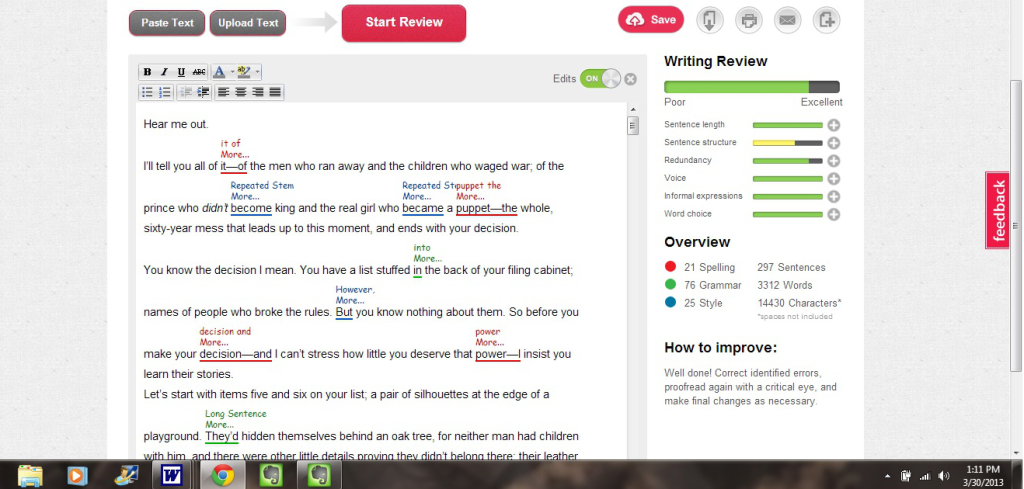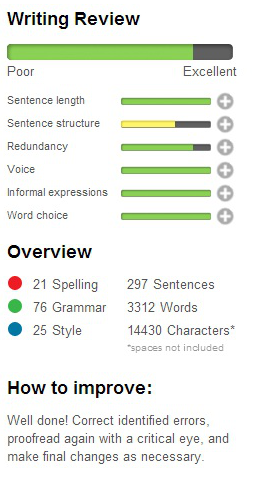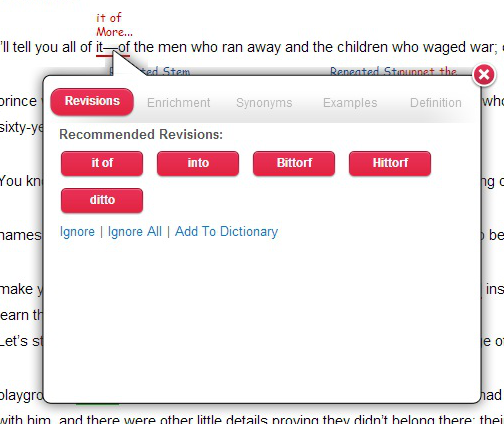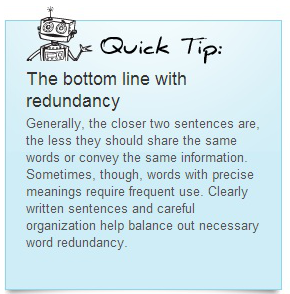I felt awkward as the photographer told me to turn my head this way and that, and our production director played AC/DC from her iPhone to set the mood. Between instructions, the photographer kept up small talk about Jethro Tull and praised my modeling abilities. “You’re a natural!” he said.
I knew, of course, that wasn’t true.
But I was willing to let a part of myself believe it was true, because I’d be more comfortable if I thought I was doing well. Therefore I would take better pictures. He knew that. I knew that.
We had entered into an unspoken contract known as a suspension of disbelief.
This contract requires something from each party. I had to agree to believe, on a superficial level at least, something I knew was not true. He, in turn, had to keep the lie within the realm of plausibility. It was not too far-fetched an idea that at least one person out of several he photographed that day would be good at tilting their head at aesthetic angles.
But if he’d said I was the prettiest, most talented subject he’d ever had the honor of photographing, he would have broken the contract. I’d become uncomfortable, suspicious he was mocking me or insulting my intelligence with such a brazen lie.
So how does this apply to fiction?
Well, here’s another example.
I was in the third book of the Inkheart trilogy, reading about a couple of characters escaping from a dungeon. I’ll redact names to prevent spoilers:
——- threw a rope down. It’s didn’t come low enough, but at a whisper from above it began growing longer, lengthened by fibers made of flames…They would have to climb fast to keep from burning their skin.
“That’s ridiculous,” I scoffed under my breath, “They’d burn their hands as soon as they touched it.”
And then I burst out laughing at myself. This was a story about people who could read things into being. Where women could turn into birds and back again, where men could command fire to take the forms of animals. And I hadn’t had trouble believing in any of that. But climbable fire – this was too much?
Yes. Because magic doesn’t eliminate the necessity of rules in a story. Anything can happen within fiction—but only within the framework of the fictional world and the tone of the story.
It’s perfectly acceptable in Douglas Adam’s Hitchhiker’s trilogy when Arthur Dent discovers the secret to human flight is to throw yourself at the ground and miss–because that nonsensical-yet-witty logic fits in a universe where six times nine equals 42.
But in a serious story—even a magical one—fire cannot support weight or fail to burn the skin instantly when grasped. Otherwise it’s not fire.
The moral of the story
Don’t blame your readers for failing to suspend their disbelief if you write something that breaks the laws of your own world. Most readers pick up a book with every intention of suspending their disbelief.
It’s up to you to make it possible for them to do it. Take it from Mark Twain:
Truth is stranger than fiction, but it is because Fiction is obliged to stick to possibilities; Truth isn’t.
—









